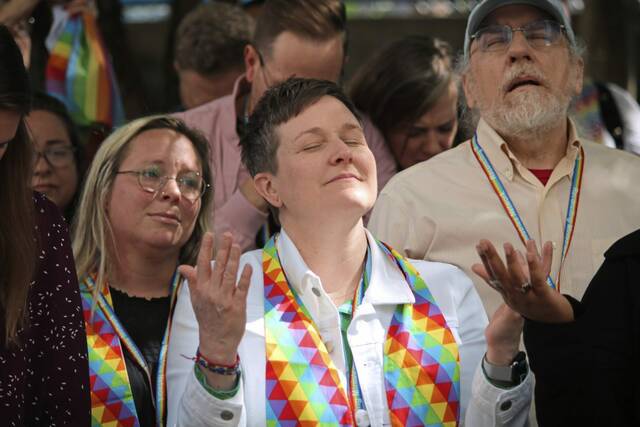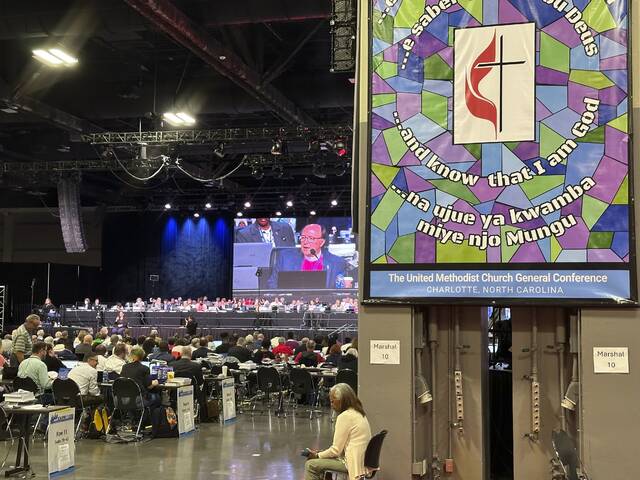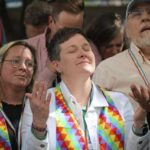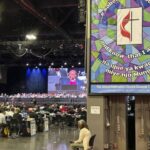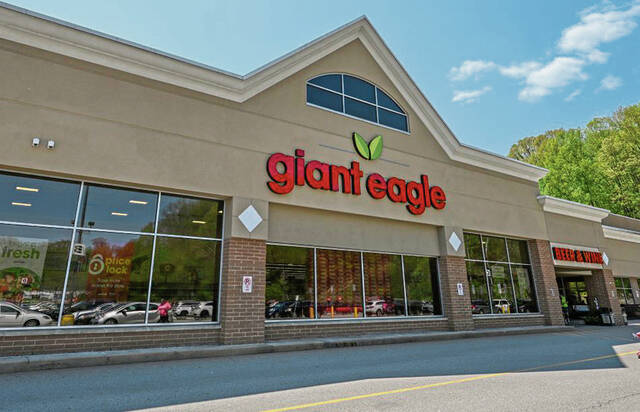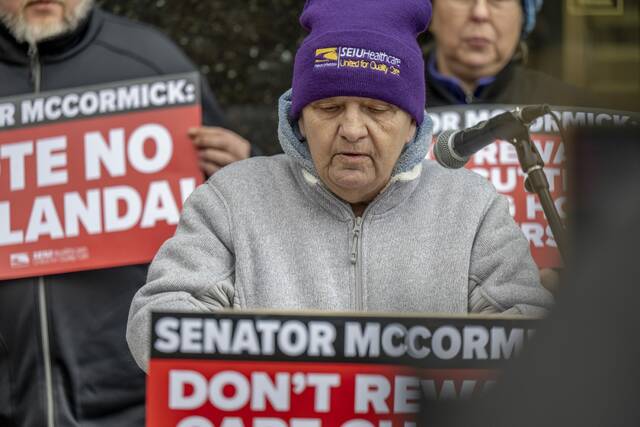The Rev. Hannah Loughman, pastor at Sewickley United Methodist Church, found herself crying tears of joy Wednesday afternoon.
“That sounds so dramatic, but I have been,” Loughman said. “We have been rejoicing all day.”
The celebrations and emotions were brought on by votes taken at the United Methodist Church General Conference in Charlotte, N.C.. At the international gathering, delegates voted overwhelmingly to repeal the church’s longstanding ban on ordaining LGBTQ clergy.
Also approved was a measure that forbids district superintendents — or regional administrators — from penalizing clergy for either performing a same-sex wedding or for refraining from performing one. It also prohibits superintendents from forbidding a church from hosting a same-sex wedding or requiring it to.
In Pittsburgh’s Bloomfield neighborhood, the Rev. Tracy Cox of First United Methodist Church said her church was hopeful and calm — and somewhat in shock.
“I feel like there’s words being spoken, and prayers being spoken, and actions being taken that are going to help provide justice in our church,” Cox said. “First Church is, we’re happy, we’re happy.”
While the change doesn’t mandate or explicitly affirm LGBTQ clergy, it means the church no longer will prohibit them. It’s possible that the change will mainly apply to U.S. churches, since United Methodist bodies in other global regions have the right to impose the rules for their own areas. The measure takes effect immediately upon the conclusion of General Conference, scheduled for Friday.
“It’s definitely a big deal, and I know there are going to be complicated feelings within our conference,” said Liz Lennox, a spokesperson for the Western Pennsylvania conference of the United Methodist Church. “This legislation allows us to live into our diversity of theology and do what is on our own hearts and on our own belief systems.”
The vote follows a schism that saw 25% of churches vote to disaffiliate, or leave the denomination, last year. Many of the departing churches left to join the newly created Global Methodist Church, seeking a more conservative denomination.
In 2023, at the June annual conference in Erie, 298 Western Pennsylvania churches split from the denomination. There are 437 United Methodist churches remaining in the region.
Related:
⢠United Methodists will vote on the church's future at upcoming General Conference⢠Months after schism, former and current United Methodist churches pick up the pieces
⢠Remaining United Methodists look to religious life after disaffiliations
⢠Some Western Pennsylvania United Methodist churches make split official at conference
⢠United Methodist churches examine future as some vote to disaffiliate
⢠United Methodist congregations contend with process of disaffiliating
Celebrating the change
The vote is particularly significant for Sewickley UMC and First Church, both of which are part of the Reconciling Ministries Network.
This group within the United Methodist faith describes itself as committed to “intersectional justice across and beyond the United Methodist connection, working for the full participation of all LGBTQ+ people throughout the life and leadership of the Church.”
Cox emphasized that the conversation around LGBTQ inclusion is not new at First UMC. The congregation has been a Reconciling Congregation for upwards of 16 years, has participated in Pride celebrations in Pittsburgh previously, and plans to continue. Rainbow banners are displayed outside its building on Centre Avenue.
“Becoming a Reconciling Congregation and striving to be a more inclusive congregation, those conversations began 18-20 years ago,” said Cox. “It’s just now that we get to harvest some of that goodness.”
At Sewickley UMC, Loughman was celebrating with parishioners visiting her office all day on Wednesday. But she doesn’t consider the vote to be the end of the story.
“I know that this is not the finish line. I know that there is work to do, but it does feel validating to know that now we will have the backing of our denomination to be able to push forward with the work that needs to be done,” she said.
“When you legislate something, even though it is now written down, you still have to embody it,” added. “I still think there is work to go.”
At First UMC, Cox echoed her sentiments.
“I think there will always be work to do, no matter what legislation is passed,” she said. “There’s a lot of work for antiracism that needs to be done, a lot of work for justice and kindness that needs to be done. That pendulum sway is always going to be in motion, because that is life. But today’s been good for First Church so far. Who knows what could happen?”
Road ahead
Once the conference ends and the delegates return home, Lennox said, the Western Pennsylvania conference plans to talk over the vote and confer with pastors.
“We will be holding a couple of webinars to explain the vote, and reassure our pastors that we are going to be continuing to do the mission and ministry that is before us, but in a way that is now more inclusive and open and welcoming to people in our communities,” she said.
The Rev. Dale Reese expects to see mixed emotions among the churches he leads. He is pastor at churches in New Kensington, Verona, Aspinwall and Rosedale, though he noted one of his churches is currently in the process of merging due to declining attendance.
“Within my (churches), one church is not going to be happy, they will be very disappointed. I don’t know what the leadership will decide — they may decide they need to leave,” he said. “Another church will be very thrilled that this change happened.”
Financial struggles and the shrinking of congregations because of aging congregations are pressing issues for his churches, he said.
As a pastor, he describes himself as a theological “middle-of-the-road centrist,” and feels he can work with congregations with differing opinions. He feels the church as a whole has become more left-leaning, as many conservative-leaning congregations disaffiliated last year.
“I can see the good on each side of the issue, and therefore I can serve churches on both sides of the issue, because I’m not going to be one who asks anything about their sexuality,” Reese said. “My only question is, are you following Jesus Christ? That’s the central question. All the other things to me (are) peripheral, and not germane to how I live my life for Jesus Christ.”
At Otterbein United Methodist Church in Greensburg, The Rev. Debra L. Mason feels some relief that the church has come to a decision.
“It’s been a point of dissension until now,” she said. “I’m relieved that this has been discussed and voted on.”
Otterbein is a Lighthouse Congregation, a church that welcomes people who are looking for a new UMC home after their home church may have disaffiliated. Mason doesn’t expect the vote will change her church very much.
“One of the reasons we’re a Lighthouse church is because we are receptive and open to loving everyone and not passing judgement,” Mason said. “I think our church is very open to the differences in other people, and not wanting to be judgmental. In that perspective, I don’t think it’s going to make much of a difference.”
The Associated Press contributed to this report.


